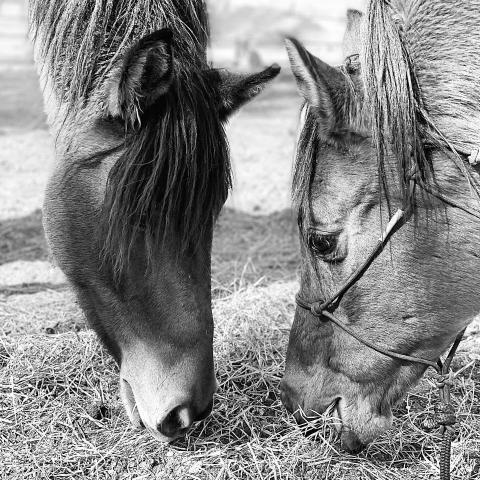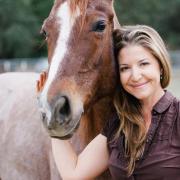
We have to communicate our needs with our herds.
When you watch a herd of horses, they’re constantly communicating with each other about group and individual needs. They have a beautiful system of feedback and flow. When a need is expressed, it’s tended to. Yes, like human herds, there’s conflict but horse herds make necessary adjustments, move through them and then move on. That’s what allows them to have ease. They would never waste energy on infighting more than the moment needed because as a herd they need that energy to survive.
We humans are the same.
Recently we hosted a group of educational leaders here at The Circle Up Experience and our Take a Chance Ranch. As servant leaders, educators are prone to not taking care of themselves and are among the worst at self-care. We talked about the culture – the group norm – of suppressing needs in which martyrdom is a badge of honor. Sounds like many of us as moms.
By the day’s end, the group asked themselves, especially their leader, can we collectively all commit to tending to and expressing our needs because we can’t take care of ourselves unless we know it’s safe to do so in this group. So that we don’t worry about being shunned by each other. That we don’t risk losing rank.
I see the issue of self-care and needs over and over. I think there are a lot of moms operating in groups that are not right for them. Or the group doesn’t even realize they have an underlying cultural issue in which there’s implicit agreement that we all ignore needs.
That’s why it’s so important to evaluate group culture – whether at work, in our community or among our friends -- because each has its own level of needs tolerance whether it’s unconscious or policy. We need to know because when we suppress needs, that becomes stress or trauma. Whether it pains or numbs us, both are harmful. Numb mammals, mammals that move on autopilot are unsafe. They no longer notice what’s happening. They’re surprised. They’re reactive. They’re destructive.
We have to learn as skills practiced daily how to listen to and identify our own needs, how to take care of ourselves, and how to need each other. We have to talk about self-care with our herds, communicate our needs and then figure out how we negotiate them together. All, in service to ourselves and in service to our herds.



The views and opinions expressed in this post are those of the author(s) and do not necessarily reflect those of MomsRising.org.
MomsRising.org strongly encourages our readers to post comments in response to blog posts. We value diversity of opinions and perspectives. Our goals for this space are to be educational, thought-provoking, and respectful. So we actively moderate comments and we reserve the right to edit or remove comments that undermine these goals. Thanks!